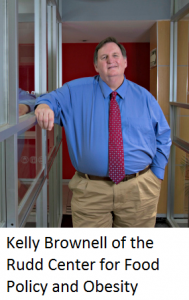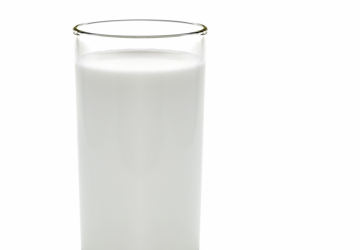 This Sunday’s New York Times Magazine leads with a full-throated endorsement of the notion that enjoyable foods are equivalent to crack cocaine. The claim isn’t supported by scientific research. Instead, the author presents his case with scarily framed quotes from businessmen who provide consumers tasty, affordable food, some “political science” from Twinkie Tax advocate Kelly Brownell, and the usual insinuations of gunpowder, treason, and plot taken straight from the fever dreams of the food police.
This Sunday’s New York Times Magazine leads with a full-throated endorsement of the notion that enjoyable foods are equivalent to crack cocaine. The claim isn’t supported by scientific research. Instead, the author presents his case with scarily framed quotes from businessmen who provide consumers tasty, affordable food, some “political science” from Twinkie Tax advocate Kelly Brownell, and the usual insinuations of gunpowder, treason, and plot taken straight from the fever dreams of the food police.
So what is the basis of the charges? Food companies try — and succeed — to make food that people can enjoy at affordable prices.
To which we say, “No, duh.” Enjoyment is not an “addiction,” however, and to assert otherwise is to torture the evidence. Cambridge University researchers recently re-issued a warning not to regard “food addiction” as the cause of obesity, noting, “Any reasonably comprehensive review must conclude that [food addiction] is a rough and incomplete descriptive phenomenon that is unsupported by existing evidence.” In plain English: it’s nonsense.
There’s another, more sinister thing going on here. Chefs have been making food that people enjoy — with the supposedly heroin-like combination of fat, salt, and sugar no less — since time immemorial, and nobody suggested that they were plotting against their willing diners. The evil that the Times author finds occurs only when the containing the tasty “devils” three, not when the elite of the Times eat their foie gras, stinky cheese, and super-organic free-range chickens (with names).
There’s more. Vintners and distillers — including Leslie Rudd, the chief benefactor of the eponymously named Yale center run by Brownell — have provided liquid calories wrapped in flavor to humans since the beginnings of civilization. But when soft drink makers provide flavor and liquid calories to the masses, food police tell us that they’ve crossed the line.
The double standard is clear. The food scolds would prefer that those of us who don’t live in Manhattan or Berkeley or attend classes in New Haven should have gruel and water—and be thankful. To be sure, they aren’t all hypocrites. Michael Jacobson — chief soda prohibitionist at the Center for Science in the Public Interest (CSPI) — thinks that the 16th Century peasant diet of “perhaps a pound of bread, a spud, and a couple of carrots per day” is “basically a wonderfully healthy diet.” Jacobson’s personal dietary austerity, which reportedly included a highly unpopular abortive attempt to remove the coffee machine from the CSPI office, is legendary. Meanwhile, others in the food police vanguard like Brownell are more in the “bans for ye, culinary indulgence for me” camp.
And of course, just as the political class used loopholes to evade alcohol Prohibition while up to 10,000 people died from federally poisoned spirits, the modern food police attack with full vigor the simple pleasures of working people but not so much the white-tablecloth indulgences of the elites. While so-called “food addiction” provides a bludgeon with which to attack cheeseburgers, somehow we doubt the Times will shutter its “Dining & Wine” section and end restaurant reviews. Upper West Siders have got to have fun, you know.




